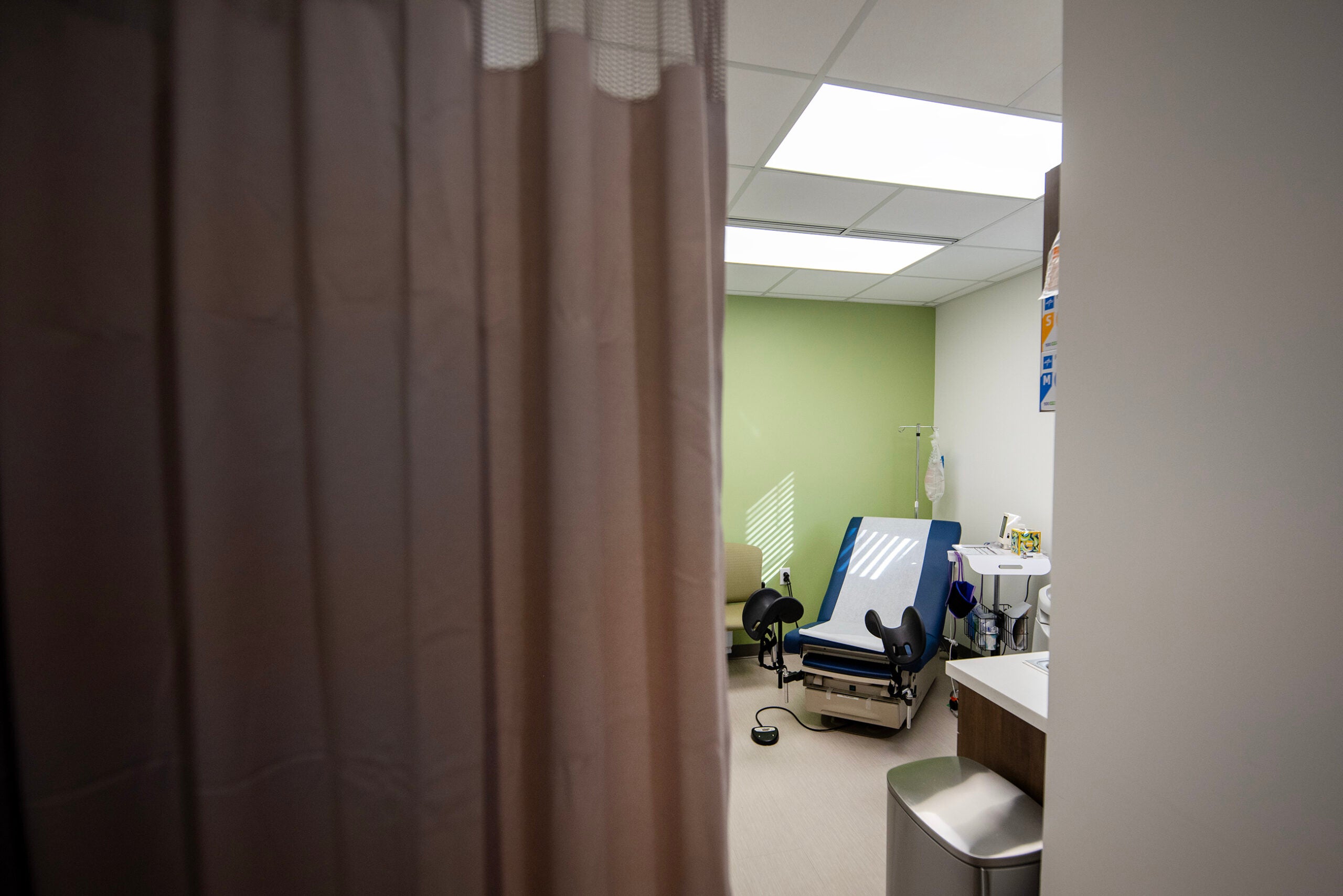Dr. Jordan Crow is an OB-GYN in western Wisconsin. Before the U.S. Supreme Court overturned Roe v. Wade at the end of June, Crow had a patient who was already a mother and was eager to have another child. But 17 weeks into her pregnancy, the patient was diagnosed with a fatal fetal anomaly, which meant her baby would likely die prior to or during labor, or shortly after being born.
“She was also diagnosed with something called placenta previa,” Crow said. “That’s where the placenta covers the cervix. So it is unsafe to have an induction and try to have a natural delivery, because that placenta will hemorrhage and basically she’ll bleed out.”
Under Wisconsin’s 173-year-old abortion ban, doctors can only end a pregnancy when the pregnant person’s life is in danger. But Crow said this patient’s case is an example of how that standard is a major gray area for medical providers.
News with a little more humanity
WPR’s “Wisconsin Today” newsletter keeps you connected to the state you love without feeling overwhelmed. No paywall. No agenda. No corporate filter.
He said there was no danger to that patient’s life at that moment. But Crow said the pregnancy would become a greater risk to the patient the more time passed. On top of the potential emotional impact of having to carry a pregnancy that will not result in a healthy baby, Crow said after 24 weeks, induction becomes the only possible course of treatment.
“Well, guess what? She has placenta previa, she can’t have a vaginal delivery,” Crow said. “You basically made her wait all the way until that baby died and so now she has to have a c-section to remove a dead baby.”
Wisconsin health care providers like Crow are struggling to navigate how to provide reproductive care in these cases — when the best practice has been to allow a patient to end their pregnancy before it becomes an even greater risk to their health.
That could include cases where a patient’s water breaks very early in their pregnancy and the baby’s chance of survival is extremely low; or in ectopic pregnancies, where the fertilized egg implants somewhere outside of the uterus and will not result in a birth.
Some Wisconsin health care leaders say providers are in a state of limbo, with multiple state laws related to reproductive care that contradict each other. They say health care providers need more clarity on what Wisconsin’s current law actually means for patient care, but they worry that clarity is not coming from the state Legislature or the court system any time soon.
Days before Roe v. Wade was overturned, Gov. Tony Evers called a special session of the Legislature to overturn the state’s abortion ban from 1849. But Republican legislative leaders gaveled in and out of the session in seconds. Some in the health care industry don’t expect any action from the state Legislature until at least early next year.
That means doctors like Crow are currently calling lawyers to try to figure out what treatments they can offer to individual patients — and what could end up getting them sued.
Dr. Kristin Lyerly, an OB-GYN in Green Bay, recently tweeted that she was waiting to hear back from a lawyer about what healthcare providers could offer a patient who had her water break at 14 weeks into her pregnancy, a case where she was “anticipating a dismal outcome.” She said providers around the state are experiencing similar scenarios, especially at smaller hospitals where doctors have fewer resources and less guidance from administration.
“We are kind of paralyzed to take care of our patients, because we know what to do. We’ve trained, we’re experienced, but we just don’t know what we can do under this 1849 law,” she said.
Lyerly, who has previously run for office, said pregnant people are often young and healthy, making it hard to know when they’ve become ill enough that their life is considered at threat.
“You have some extraordinary clear-cut cases where I would feel comfortable ending someone’s pregnancy and would only be minimally nervous about what’s going to happen to me legally,” Crow said. “And then you have some very gray cases where I will sit there and go, ‘Well, I know I’m doing the right medical thing. I know I’m doing the right ethical thing. I believe, therefore, that means I’m also doing the right legal thing. But there are people who could disagree with me, and that could get me in trouble.’”
Many health care providers are unwilling to speak publicly about how they will handle these complicated situations in reproductive health care moving forward. Several health care systems in Wisconsin declined to talk to Wisconsin Public Radio for this story, saying they are still analyzing what the U.S. Supreme Court decision means in the state.
Crow said the threat of potential legal action is also scaring some medical staff from providing care that is clearly allowed under the law. He said he recently ran into this fear in his own workplace, when he found out that staff were uncomfortable removing a miscarriage.
“This is creating uncertainty. This is creating fear in the medical community to provide what is routine care, and also what is completely legal care. They’re still scared of that,” Crow said.
As federal agencies like the Centers of Medicare and Medicaid issue new policies for hospitals, health care providers will likely feel more comfortable providing certain types of reproductive care. But legal challenges to those policies are also likely, leaving providers with little certainty in the foreseeable future.
Wisconsin Public Radio, © Copyright 2025, Board of Regents of the University of Wisconsin System and Wisconsin Educational Communications Board.







